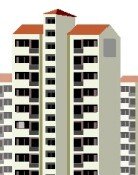Report: North Counterfeits Cigarettes
Report: North Counterfeits Cigarettes
Posted February. 23, 2006 03:07,
Washington correspondents, especially Korean and Japanese journalists, have been fiercely competing to get access to a report on North Korean counterfeit cigarette production. The report is a result of co-investigation funded by Philip Morris of the U.S., British American Tobacco (BAT) of the United Kingdom, and a Japanese tobacco manufacturer. The 11-page report was compiled on June 29 last year.
The Asian edition of Time Magazine acquired the report and reported parts of it in its January 30 issue. Korean media outlets have not yet reported the document, however. Prior to the Time story, the Wall Street Journal mentioned the existence of the report on January 27, but its report gathered little attention.
Whats noticeable about this report is that a coalition of U.S., European and Japanese tobacco companies hired former intelligence agents, investigators, and criminal organization informants to penetrate North Korea and to write about their discoveries. It was reported that Andre Reiman, a senior vice president of Philip Morris USA, which produces Marlboro cigarettes, led the final preparation of the report.
The report was submitted to U.S. authorities. Reportedly, the Korean government has also shown interest in obtaining the report.
According to Time Magazines coverage of the report, it is estimated that there are 10 to 12 tobacco factories in North Korea; that some of the cigarette factories are directly owned by North Korea`s military and internal security service, giving the state total control over their operations; and that North Korea provides a safe haven for factories run by overseas counterfeiting syndicates. Three of the factories that are said to be located in the Rajin area (in the North Hamgyong Province) are allegedly run or financed by crime syndicates from Taiwan (and who are thought to be the same Taiwanese organized crime syndicates whose members were arrested in the U.S. last August).
According to the article, another factory in Rajin employed 120 people and was run by Chinese supervisors and technicians. North Korean officials were allegedly paid a tax on the factory`s cigarettes, which were then exported in fishing vessels owned by a Taiwan crime syndicate, the article said. A chief attraction of running such a business in North Korea is that the regime`s willingness to allow smuggling vessels to use its ports provides gangs with a secure delivery channel. And on occasion, such shipments have been intercepted in foreign waters.
The Wall Street Journal reported, A group of people (of unknown nationality) even made an offer to sell counterfeit dollars to the Philip Morris informants who penetrated North Korea. This was reported to the U.S. Department of Treasury.
On February 17, Philip Morris USA declined requests for access to the report and for an interview with those who made the report. The company explained, It is not appropriate at this moment, although some parts of the report have already been covered by media outlets. Please contact the U.S. government for more information on the issue.
Seung-Ryun Kim srkim@donga.com
Headline News
- Joint investigation headquarters asks Yoon to appear at the investigation office
- KDIC colonel: Cable ties and hoods to control NEC staff were prepared
- Results of real estate development diverged by accessibility to Gangnam
- New budget proposal reflecting Trump’s demand rejected
- Son Heung-min scores winning corner kick







